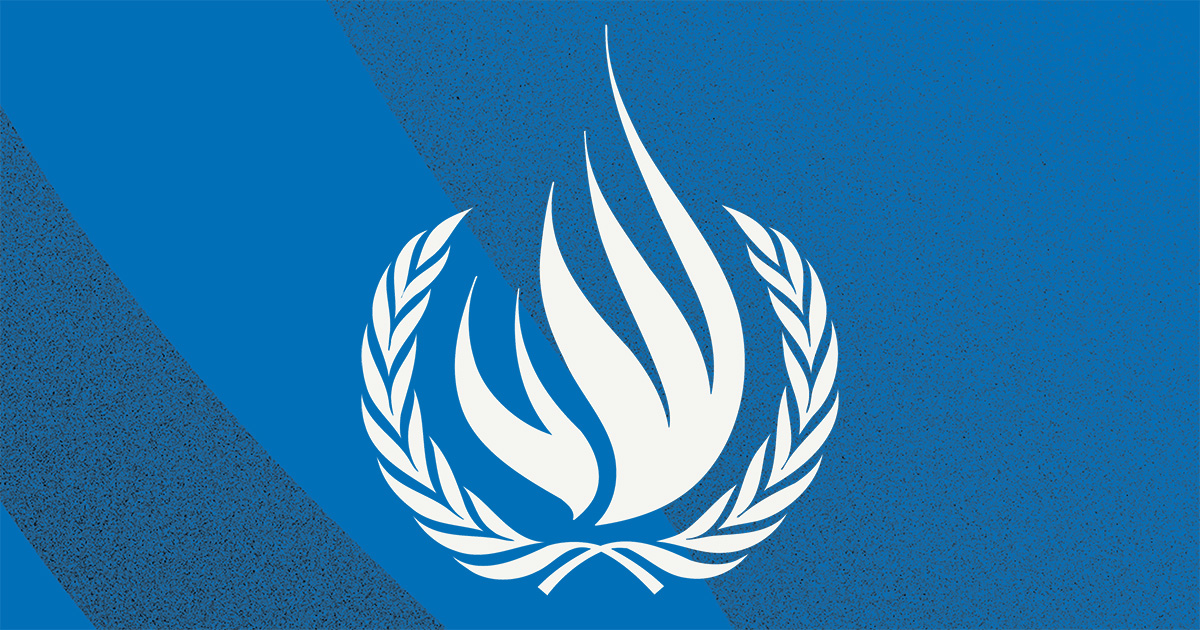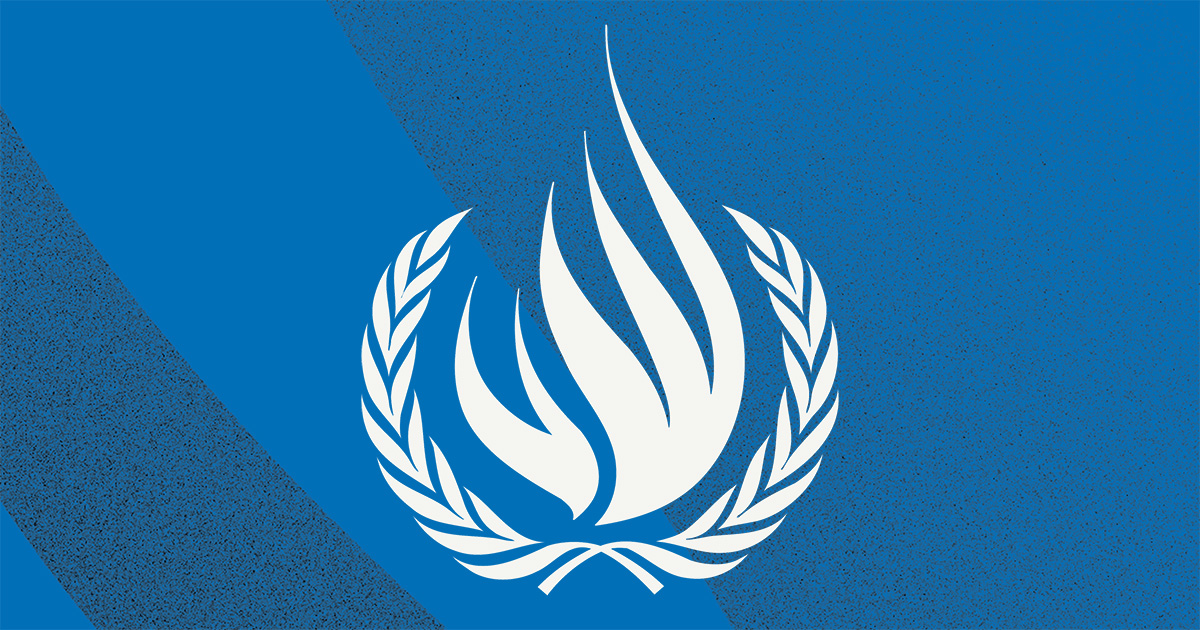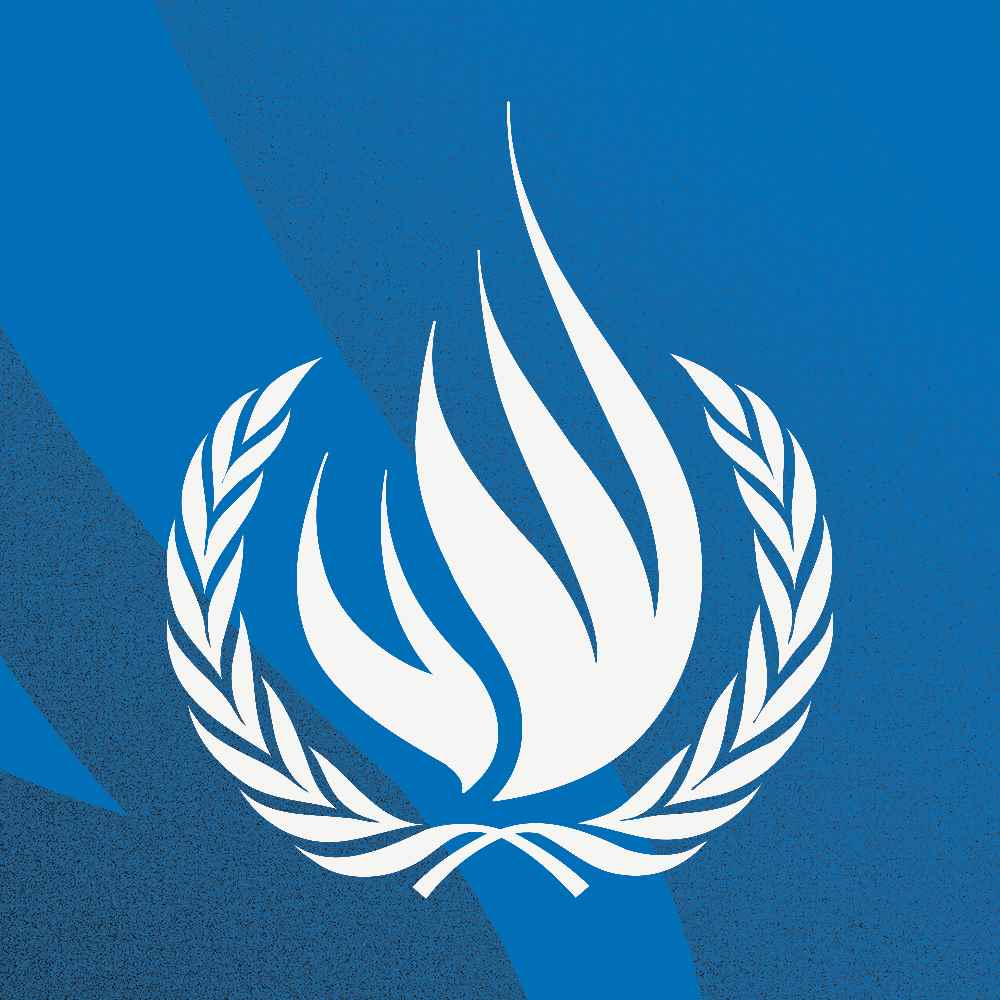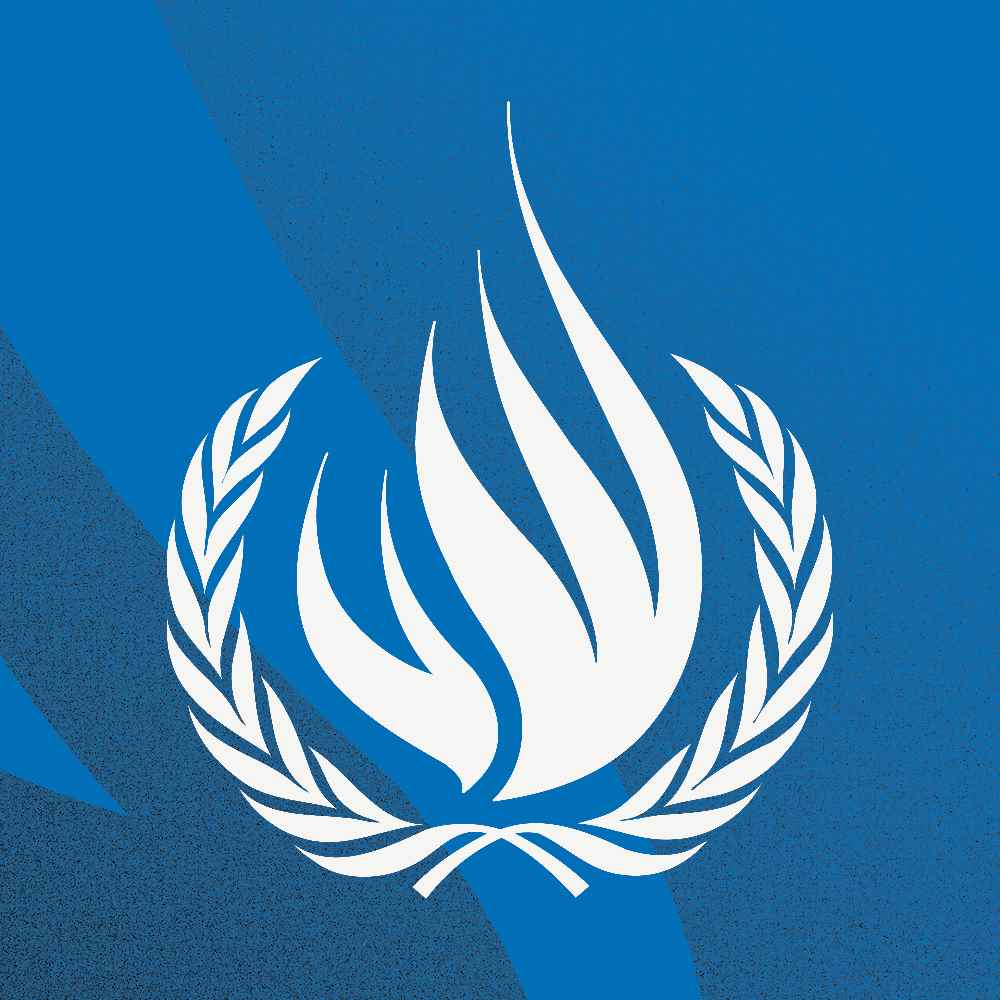
DELIVERED BY
Volker Türk, UN High Commissioner for Human Rights
AT
Informal Plenary meeting of the General Assembly on the situation in the Occupied Palestinian Territory, particularly Gaza
President of the General Assembly,
Excellencies,
Colleagues,
A conflagration of violence has been unleashed in the Occupied Palestinian Territory – both in Gaza and the West Bank – as well as in Israel.
In such a situation the protection of civilians is an absolutely top priority. The killing of civilians must not become acceptable collateral damage. It must not become a deliberate weapon of war. Not in a refugee camp. Not in a kibbutz. And not in a hospital. Not anywhere.
Mr President,
During my mission to Egypt and Jordan last week, for which I thank both countries, – I encountered an outpouring of anguish, fear, anger and despair.
The people of Gaza, who for years have seen their rights comprehensively restricted, are enduring bombardment by the Israeli Security Forces of an intensity rarely experienced in this century, together with ongoing urban warfare.
One in every 57 people living in the Gaza strip has been killed or wounded in the past five weeks, according to figures from the Gaza Ministry of Health. The levels of distress are unimaginable; the situation is a living nightmare. Over 11,100 have been killed, more than 4,600 of them children. More than 26,000 people have been injured, many severely. And at least 2,000 more people are presumed to be trapped under rubble, where there is no capacity to reach or rescue them. Hospitals, schools, homes, and the markets and bakeries that constitute a lifeline have also been hit by Israeli airstrikes. An entire population is being deeply traumatised, and the impact on children, in particular, will have far-reaching consequences.
In Israel, according to the authorities, 1,200 people, including many children, were killed in horrific attacks by Hamas and other Palestinian armed groups on 7 and 8 October. 239 people, including children, were captured and taken to Gaza. And the nation has been thrown into shock.
Against this backdrop, let me highlight some salient protection points.
It is a fact that many civilians are unable to comply with the Israeli forces" instructions to move elsewhere in the face of imminent bombardment. Hundreds of thousands of people – including many children, wounded, and people with disabilities – remain in the north, or other areas of intense military activity, including areas where humanitarian access has become impossible. Their lives must be protected urgently.
The current Israeli proposal for a so-called ‘safe zone’ is untenable: the zone is neither safe nor feasible for the number of people in need. I refer you to yesterday"s statement by the Inter Agency Standing Committee: civilians must be protected throughout Gaza, wherever they are.
I also join my humanitarian colleagues in our alarm about the imminent total depletion of fuel supplies. Already, this is leading to the collapse of water, sewage and crucial healthcare services, and could end the trickle of humanitarian assistance that Israel has to date permitted to enter Gaza. Massive outbreaks of infectious disease seem inevitable, and WFP warns that civilians "are facing the immediate possibility of starvation".
International humanitarian law is clear.
All parties must, at all times, distinguish between civilians and combatants, and between civilian objects and military objectives.
Attacks directed at civilians or protected civilian objects – such as hospitals – are prohibited.
Indiscriminate attacks – for example, the use by Palestinian armed groups of indiscriminate projectiles aimed at southern Israel – are prohibited.
Attacks where the likelihood of civilian death, and damage to protected objects, is disproportionate to the probable military advantage – as constantly risked by Israel’s use of explosive weapons with wide-area effect in densely populated areas – are prohibited.
Forced displacement is prohibited.
The taking and holding of hostages is prohibited, as is any use of civilians to shield locations from military operations.
Collective punishment – as in the case of Israel’s blockade and siege imposed on Gaza – is prohibited.
No-one is above the law. Breaches of international humanitarian law – even war crimes – committed by one party do not, ever, absolve the other from compliance with the principles of the law of war and their human rights obligations.
All serious allegations of multiple and profound breaches of international humanitarian and human rights law – whoever commits them – demand rigorous investigation and full accountability.
Where national authorities prove unwilling or unable to carry out such investigations, and where there are contested narratives on particularly significant incidents, international investigation is called for.
Excellencies,
In the occupied West Bank, including East Jerusalem, I am deeply concerned about the intensification of violence and severe discrimination against Palestinians. I am alarmed by the rise in killings of Palestinians by Israeli security forces and by settlers; displacement of Palestinian communities due to settler violence; a sharp increase in seemingly arbitrary arrests and detention; and the ill-treatment of Palestinians in detention. These heighten a potentially explosive situation that is well past the early warning level. I am ringing the loudest possible alarm bell about the West Bank.
I share with many a deep sense of foreboding about the risk of spillover into the wider Middle East region, if the current trajectory of this conflict continues.
This crisis is also another global shock to our multilateral system – driving more polarisation and creating deeper fractures, with terrible impact on the solutions that humanity so urgently needs.
Three weeks ago, by a broad majority of Member States, this Assembly took clear action on the crisis. Resolution ES-10/21 called for an immediate and sustained humanitarian truce leading to a cessation of hostilities. Since then, the situation has further, and dramatically, deteriorated. The Security Council"s resolution 2712 on Wednesday called for “urgent and extended humanitarian pauses and corridors throughout the Gaza Strip”, among other key demands on the parties.
These repeated calls by the global community must not be ignored, but implemented at once.
There must be a ceasefire on humanitarian and human rights grounds, and an end to the fighting – not only to deliver urgently needed food and provide meaningful humanitarian assistance, but also to create space for a path out of this horror.
Rapid and unimpeded humanitarian assistance throughout Gaza, in line with humanitarian principles, including life-saving fuel, and at the magnitude required, must be facilitated – including through crossings from Israel.
International humanitarian and human rights law must be respected, immediately and fully. There must be an end to grave human rights violations, notably against children.
All hostages must be released.
All forms of collective punishment must cease.
The Israeli authorities must take immediate steps to ensure that the security forces comply with their obligations as an occupying power to protect Palestinians in the occupied West Bank, including from violence by settlers. Investigations into violations must be carried out without delay; the current widespread impunity for such violations must stop.
Accountability is the key to any prospect of a genuine solution, and my Office has issued numerous detailed recommendations for years to address the underlying drivers of the Israeli-Palestinian conflict – most recently in my speech to the Human Rights Council in March. It is urgent that their implementation begins.
My Office has scaled up its engagement. I stress the importance of full access to Israel and the Occupied Palestinian Territory, including all parts of Gaza, for my Office, to ensure that we can carry out our independent monitoring and documentation and protection coordination work without hindrance, in line with the mandate entrusted to us by this Assembly.
I also strongly encourage continued support for civil society groups, including with financial resources. Amid such turmoil, their work is especially vital.
A vortex of hate speech and disinformation is fuelling dehumanisation, and blocking the search for an enduring solution. I am very concerned about the risk of further grave violations, even potentially amounting to atrocity crimes, in light of recent statements by some in leadership positions.
What kind of societies will emerge from this crisis? Only extremism can win a war in which so many children are killed. And the endpoint of extremism is even greater despair, and more bloodshed.
Israelis" freedom is inextricably bound up with Palestinians" freedom. Palestinians and Israelis are each other’s only hope for peace. It is essential that all parties acknowledge the reality of the humanity and the suffering of the other. Every civilian, Palestinian or Israeli, has exactly the same rights to live and thrive in peace and in freedom.
That is the promise of the Universal Declaration of Human Rights. And if there is one lesson to be drawn from this crisis it is the centrality of human rights for the prevention, mitigation and resolution of conflict.
It is clear that the Israeli occupation must end. It is essential to ensure the rights of Palestinians to self-determination and to their own State. And it is essential to acknowledge that Israel has a right to exist.
My Office will continue to insist, vigorously, on the upholding of international human rights standards, which are our common heritage and shared foundation for peace and justice.
Thank you.











